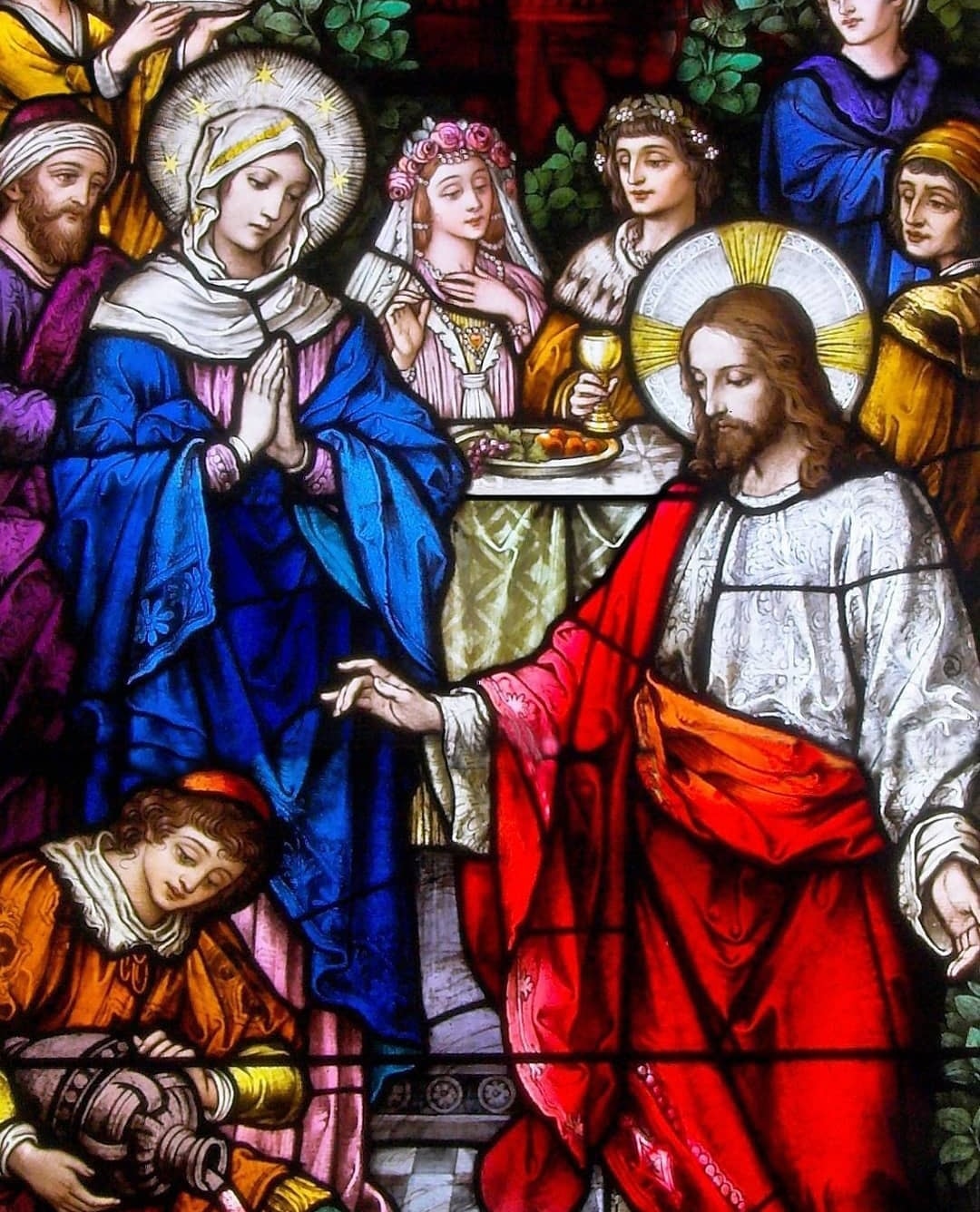
Jn. 2: 1-11
In our sojourn here, we may encounter situations wherein we experience the shame of losing our dignity in front of others. This moment is a real test because it can damage the good name of the person and the credibility that person has built over the years. The gospel passage of the day leads us to such a situation at the wedding feast of Cana. In Jewish culture, the marriage function is a very solemn occasion and lasts for a few days. The marriage function is a matter of pride for every family. Vine is a common drink in this Near East culture, and hosts make sure that they provide the best vine that they can afford on that day. It is said that for the marriage function, the guest also brings vine as a gift to the hosts to share with everyone. Therefore, running short of the wine is an extremely embarrassing situation for the family.
We encounter the same shameful situation at the wedding feast of Cana. They ran short of wine. The entire host family might have felt the danger of losing their dignity and public shame. They might have felt helpless and hopeless because they were not aware of the real Jesus at that time. Mary senses this public disgrace immediately and she knows what it means: the threat of losing one’s dignity in public. She had experienced the way God became a shield of protection that saved her from public disgrace through the instrumentality of St. Joseph. Mary did not wait for the mother of the family or any other member to approach her and seek the possibility of any help. She remained sensitive to the needs of that family. She knew for sure her son could turn this moment of public disgrace into an experience of God’s grace. Mary, who knew the divine identity of her son, approached him without delay.
Despite this, Jesus asks her, “What is your concern for you and me?” Mary did not answer, but she recommends the servants to her son and asks them to do whatever he tells them to do. Jesus wanted to tell her that his time had not yet come and hers too. Mary accepts his will with all her humility. She knows her son in depth and has great confidence in him, so she tells the servant to do whatever he tells you. His mother’s wish becomes a command for Jesus. He works on the first of his signs, changing water into vine. A life situation that could cause great shame for the family because of a moment of great pride and joy. The family that ran out of wine provides the best wine even at the last moments of the wedding celebration, which gives the family extra pride and privilege. Thus, through Mary’s intercession, Jesus becomes a protecting shield that covers the shame of the family.
John presents this as the first of his signs in the public ministry of Jesus. The presence of Mary becomes vital in the life of Jesus, especially during his public ministry. She became an instrumental cause that inaugurated his Messianic mission. At the wedding feast of Cana, Jesus addresses her as “woman” and finally, on the cross, when he gives his mother as a mother to all his beloved disciples. Thus, Eve, the first woman who failed in the garden of Eden, was replaced by Mary, the Second Eve, who is full of grace and shields humanity from all its disgrace. At the wedding feast of Cana, her presence provides an abundance of vines for the disciples. On Pentecost day, after Jesus’ resurrection, the disciples experienced the abundance of the Holy Spirit in her presence. As we continue our life journey, let us take her home like the beloved disciple, and she will guard us from the moments of running short of vine-moments of shame with her graceful presence in our lives.